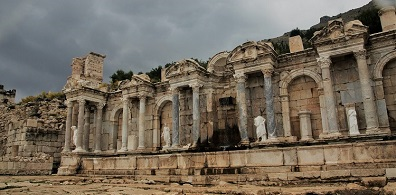What is cultural heritage?

Tangible or intangible representations of customs, practices, places, objects, and values of communities passed on from generation to generation are called cultural heritage as a whole. The concept of cultural heritage originates from the idea that civilizations’ cultural treasures belong to all humankind. Focusing on universalness makes it possible to preserve the cultural treasures for the future.
The idea of “national heritage” gaining historical significance enables elements of a nation’s history and culture to be compiled in various institutions, starting with museums. With the adoption of “world heritage” as a concept in the later part of the 20th century, we see a leap from a singular idea to a global scope, allowing us to acquire a more comprehensive understanding of the past through human creations.
Cultural heritage, like many concepts, has more than one specific and limited meaning because it evolves over time, expands to include new meanings, and requires critical re-evaluations. Tangible cultural heritage items are currently categorized as movable and immovable artefacts, with works of art, documents, and objects in the former category and landmarks, historical sites, and monuments in the latter. With the need to protect tangible cultural heritage assets comes the rise of disciplines such as museum studies, archiving and documentation, and preserving works of art and archaeological artefacts. Intangible cultural heritage on the other hand addresses customs, forms of artistic expression, and languages of civilizations. Narrations, dance and other performances, culinary culture, crafts and forms of knowledge specific to a culture and geography, etc. make up the intangible heritage.
In line with its cultural mission, Vehbi Koç Foundation continues to make significant contributions to the efforts to find, unearth, and protect artefacts of past civilizations and produce critical and quality information on this heritage. The Foundation’s support of various events and projects include the Sagalassos Excavations, Claros Excavations, Restoration of the Church of St. Euphemia, and International Sevgi Gönül Byzantine Studies Symposium, to name just a few.
Please visit the link for more information on how Vehbi Koç Foundation supports cultural projects, firsts of their kind in Turkey.



